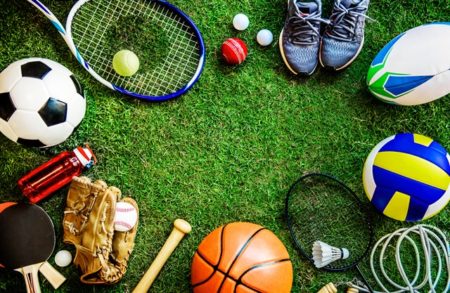16 June 2022
By Roger Kennedy
roger@TheCork.ie
There are numerous benefits of workouts and sports: relieves stress, improves cardiovascular health, reduces blood pressure, aids weight management, improves joint flexibility, enhances aerobic fitness, and lowers the risk of chronic illnesses, such as diabetes, heart disease, and stroke. Based on research, most workouts and sports are associated with muscle soreness.
Therefore, you should opt for a strategy that’ll help your muscles recover. Living a healthy lifestyle is the most important step in muscle recovery. There isn’t a muscle recovery method that’ll incorporate lack of rest and poor nutrition. Your fitness goals, current fitness level, and body type play a significant role in determining the ideal way to recover. Below are tips for muscle recovery after a sport or workout.
1. Get Hydrated
Rehydration is important, particularly if you’ve broken a sweat or exercised intensely. Replenishing your body’s fluid level will play a vital role in preventing muscle soreness, enhancing your strength, and improving muscle flexibility. You should drink 7 to 10 ounces of water after a sport or strength training. In addition, you can consume healthy drinks, such as chocolate milk, black or green tea, and coconut water. Healthy drinks are great sources of electrolytes, such as sodium and potassium, that are essential in relieving and preventing muscle cramping. Avoid alcoholic, sugary, and caffeinated drinks, which may lead to dehydration.
2. CBD Balms & Edible Products
Cannabidiol is becoming more popular in the world of supplements. It comes in an array of forms, such as edibles, capsules, tinctures, and ointments. In addition, CBD can be found in beauty products, such as a muscle balm with CBD.
Based on numerous studies, CBD balm is a great option for a workout or sports enthusiasts. It contains various soothing ingredients, such as tea tree oil, eucalyptus, peppermint oil, and other essential oils. After an intense workout or an intense sporting activity, you can massage yourself with CBD balm to get an appropriate dose of CBD. You should apply it to your joints and muscles only.
CBD gummies are a popular choice for those looking for relief from muscle pain and soreness. CBD, or cannabidiol, is a compound found in cannabis plants that have been shown to provide various health benefits. Some research suggests that CBD may help to reduce inflammation and pain, two common symptoms of muscle damage.
CBD gummies are convenient and discreet, making them an ideal option for those who want to take CBD while on the go. They’re also available in a variety of flavours and strengths, so you can find the perfect product to meet your needs. If you’re looking for a natural way to promote muscle recovery, CBD gummies may be worth considering.
3. Prioritise Proteins
To build and repair muscles, consider meals that contain high-quality proteins and healthy carbohydrates. Some of the best protein-rich foods that’ll help your muscles recover include lean meat, eggs, milk, fish, nuts, seeds, soy foods, and cheese.
4. Cool Down
The last thing that you may want to do after a sport or hard workout is to put in more work or effort, but that’s what you need to catalyze the muscle recovery process. Before stretching out your muscles, take at least 5 minutes to focus on your breath. Stretching boosts mobility, enhances blood flow, promotes the delivery of nutrients and oxygen to tired muscles, and eases muscle tension. These factors will facilitate muscle recovery and repair.
5. Sufficient Sleep
Bedtime is the ideal time for muscle recovery. Sleep deprivation increases your risk of developing severe health issues, such as diabetes, high blood pressure, stroke, heart failure, and heart attack. In addition, inadequate sleep can prevent the protein synthesis process, which is crucial for muscle repair and recovery. Create a good sleep schedule that incorporates meditation or diffusing a relaxing scent.
6. Get Hot, then Cold
When you’re tired and experiencing a feeling of soreness after a sport or workout, take a hot shower to calm and relax your muscles, then switch to cold water or ice to reduce inflammation and pain. After this combo, stretch out your joints and muscles to recover fully.
7. Do a Quick Body Check
After a workout or sport, take some minutes to assess how you feel.
Avoid overexerting yourself because it can lead to injury and muscle soreness. When you’re exercising, your main objective is to challenge yourself rather than punish yourself. This means that you should go hard, but not so hard that you may pay the price with injury or muscle soreness. A perfect workout or sport will energize and challenge you. You shouldn’t leave a workout or sport feeling drained.
8. Try Compression Garments
There are numerous compression garments for various body parts, including the back, hands, calves, knees, and elbows. The right compression garment reduces inflammation and improves air. In addition, they prevent delayed soreness and muscle pain. In some studies, compression garments may help remove lactic acid in your muscles.
Conclusion
The above-mentioned tips will improve muscle recovery, stimulate protein synthesis, and improve your performance during your next sport or workout.


